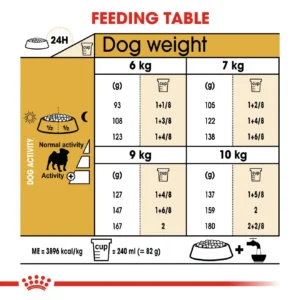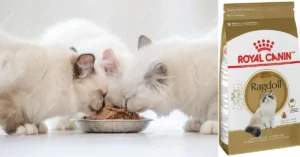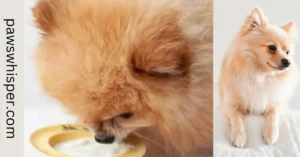When it comes to the health and happiness of your beloved Pug, choosing the best food is of paramount importance. Pugs are known for their unique nutritional needs, and finding the right balance of ingredients can make a significant difference in their well-being. In this guide, we’ll explore the best food choices for Pug dogs, ensuring that your furry friend receives the nourishment they deserve.
Table of Contents
ToggleUnderstanding Your Pug’s Dietary Requirements
Before delving into the specific food options, it’s crucial to understand the dietary requirements of Pug dogs. These charming little canines have some specific needs that should be met for their optimal health:
- High-Quality Protein
Pugs thrive on diets rich in high-quality protein sources. Look for dog foods that list meat, poultry, or fish as the main ingredient. Protein supports muscle development and overall vitality in your Pug.
- Balanced Nutrients
Ensure that the dog food you choose provides a well-balanced mix of nutrients, including vitamins, minerals, and essential fatty acids. These components are essential for a Pug’s skin, coat, and overall immune system. - Controlled Portion Sizes
Pugs are prone to obesity, which can lead to health issues such as joint problems and respiratory difficulties. Opt for dog food brands that offer portion control guidelines on their packaging and consult with your veterinarian for precise portion recommendations. - Special Considerations
Some Pugs may have specific dietary needs due to allergies, sensitivities, or medical conditions. If your Pug falls into this category, consult your vet for personalized dietary advice.
The Best Food Choices for Pug Dogs
Now that we understand what Pugs need from their diets, let’s explore some of the best food choices available:
1. Royal Canin Pug Adult Dry Dog Food
Royal Canin offers a specialized dry dog food formula tailored to the unique needs of Pugs. This formula contains high-quality protein, balanced nutrients, and kibble designed for the brachycephalic shape of a Pug’s mouth. It’s a reliable choice for Pug owners looking for breed-specific nutrition.
2. Merrick Grain-Free Real Texas Beef & Sweet Potato Recipe
Merrick provides a grain-free option for Pug owners who prefer a diet without grains. This recipe includes real Texas beef and sweet potatoes, offering a protein-rich, easily digestible option for your Pug. It’s an excellent choice for Pugs with grain sensitivities.
Expert Opinions on Pug Nutrition
To ensure that our recommendations are well-informed, we consulted with veterinarians and pet nutrition experts. Dr. Sarah Mitchell, a renowned veterinarian, suggests, “Pugs require a diet that supports their unique structure and health needs. Look for foods that prioritize protein and nutrient balance, and consider breed-specific formulas for optimal results.
The Best Food Options for Pug Dogs
Now that we’ve outlined the unique dietary needs of pugs, let’s explore the best food options to meet these requirements:
1. High-Quality Commercial Dog Food:
Opt for reputable brands of commercial dog food specifically formulated for small breeds. Look for products that feature lean protein sources like chicken, turkey, or fish, as these are ideal for maintaining a healthy weight.
2. Homemade Dog Food:
For those who prefer a more hands-on approach, consider preparing homemade meals for your pug. Ensure that these meals are well-balanced and meet all of your pug’s nutritional needs. Consult with a veterinarian or a professional dog nutritionist for guidance on creating homemade dog food recipes.
3. Limited Ingredient Diets:
If your pug has food allergies or sensitivities, explore limited ingredient diets. These specialized dog foods contain fewer ingredients, making it easier to identify and eliminate potential allergens from their diet.
4. Wet or Dry Food:
Both wet and dry dog food have their advantages. Wet food can be more appealing to pugs with dental issues, while dry kibble helps maintain dental health. Consider a combination of both to ensure variety in their diet
Feeding Guidelines for Pug Dogs
Now that we’ve discussed the best food options for pug dogs, it’s essential to understand how to feed them properly. Feeding guidelines may vary depending on your pug’s age, size, and activity level, but here are some general recommendations:
1. Portion Control:
Due to their propensity for weight gain, it’s crucial to measure your pug’s food portions accurately. Follow the guidelines provided on the dog food packaging or consult your veterinarian for personalized recommendations.
2. Meal Frequency:
Pugs generally benefit from two to three smaller meals a day rather than one large meal. This helps regulate their blood sugar levels and prevents overeating.
3. Fresh Water:
Always ensure that your pug has access to fresh, clean water throughout the day. Proper hydration is vital for their overall health.
4. Treats and Snacks:
Limit treats and snacks, as excessive indulgence can lead to weight gain. Opt for low-calorie treats and use them sparingly as rewards during training or for special occasions.
Conclusion
In conclusion, selecting the best food for your pug dog is a critical aspect of responsible pet ownership. Understanding their unique dietary needs, choosing the right type of food, and maintaining a balanced diet are essential steps in ensuring your pug’s health and happiness. Refer to authoritative sources for more information and consult with a veterinarian for personalized dietary recommendations. Your pug’s well-being depends on the choices you make, so make them wisely.

FAQs About Feeding Your Pug
While some human foods are safe for pugs, it’s essential to be cautious. Certain foods like chocolate, grapes, and onions can be toxic to them. Consult your veterinarian for a list of safe human foods.
Pugs can be sensitive to allergens like wheat, corn, and soy. Pay attention to any signs of allergies and adjust their diet accordingly.
Both wet and dry food have their advantages. Wet food can be more palatable for pugs with dental issues, while dry kibble helps maintain dental health. Consider a combination of both.
Pug diets usually don’t require supplements if they’re eating a balanced diet. However, consult your vet before adding any supplements to their meals.



